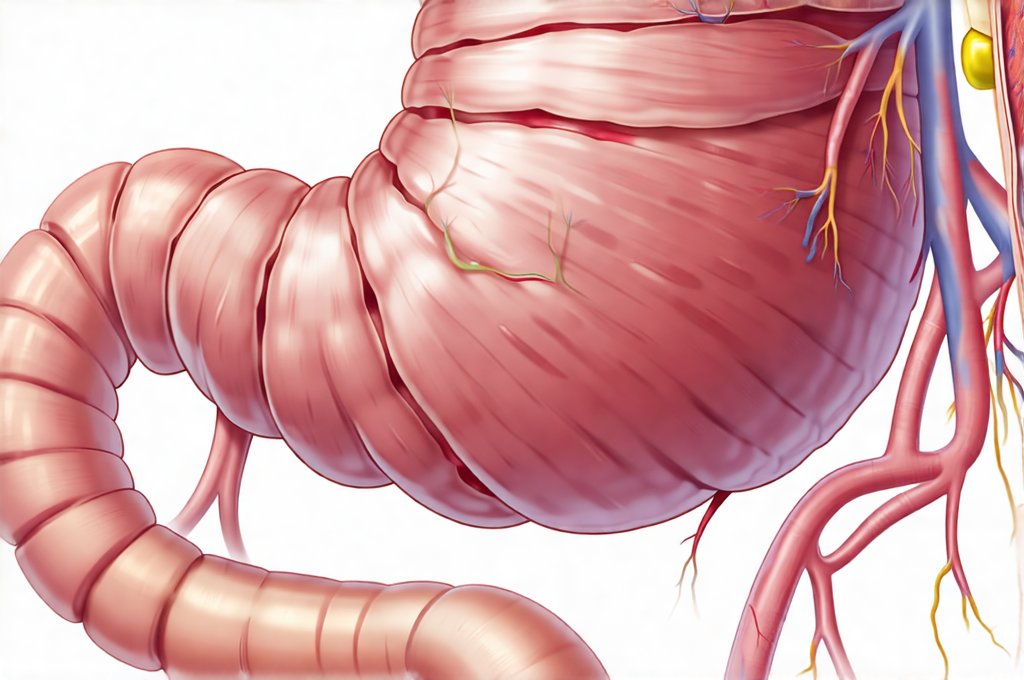The digestive system is often taken for granted until something goes wrong. Many individuals experience discomfort stemming from imbalances within their gut microbiome, frequently manifesting as bloating, gas, and unpredictable bowel movements. These symptoms are often linked to excessive fermentation in the colon – a natural process that becomes problematic when it’s disproportionate or causes distress. Fermentation itself isn’t inherently bad; it’s how our gut bacteria break down carbohydrates that haven’t been fully digested in the small intestine. However, an abundance of fermentable carbs, coupled with microbial imbalances, can lead to overproduction of gases and discomfort. Understanding how daily routines impact this process is crucial for fostering a healthier digestive experience and improved overall wellbeing.
This article will delve into practical, achievable lifestyle adjustments that can significantly reduce unwanted fermentation in the colon. These aren’t about drastic diets or restrictive regimens; instead, they are focused on building sustainable habits that support optimal digestion and gut health. We’ll explore how mindful eating, stress management, movement, and targeted dietary choices can collectively contribute to a more balanced internal ecosystem. The goal is not to eliminate fermentation entirely – it is part of healthy digestion – but rather to manage it effectively and minimize uncomfortable symptoms. This means promoting efficient nutrient absorption in the small intestine and reducing the amount of undigested food reaching the colon. Understanding foods that help restore pH balance is also vital for gut health.
Dietary Strategies for Reduced Fermentation
Diet plays a pivotal role in determining the extent of fermentation within the colon. While completely eliminating carbohydrates is neither realistic nor desirable (our bodies need them!), focusing on how we consume carbohydrates and which types we prioritize can make a substantial difference. Many highly fermentable carbohydrates, known as FODMAPs (Fermentable Oligosaccharides, Disaccharides, Monosaccharides And Polyols), are culprits behind excessive gas production. These aren’t inherently “bad” foods but can trigger symptoms in sensitive individuals. A temporary low-FODMAP diet guided by a healthcare professional can help identify sensitivities, but long-term adherence isn’t always necessary or beneficial for everyone. Foods that calm the stomach can also be incorporated into your diet.
A more sustainable approach involves focusing on whole, unprocessed foods and incorporating strategies to slow down carbohydrate absorption. This includes pairing carbohydrates with protein or healthy fats – for example, having an apple slice with almond butter instead of just the apple. Fiber is also important, but it’s crucial to increase intake gradually to avoid exacerbating fermentation as your gut microbiome adjusts. Soluble fiber, found in oats and chia seeds, can be particularly helpful because it feeds beneficial bacteria while potentially reducing overall gas production compared to insoluble fiber in large quantities. Prioritizing easily digestible carbohydrates like cooked root vegetables, well-cooked grains, and fruits with lower fructose content is a good starting point. You might also consider post-meal routines to further aid digestion.
Furthermore, paying attention to food combinations is often overlooked. Eating large meals that combine many different types of foods can overwhelm the digestive system, leading to incomplete breakdown and increased fermentation. Simple meal composition – focusing on fewer ingredients at each sitting – allows for more efficient digestion. Chewing thoroughly also significantly aids this process; it’s the first step in breaking down food and reduces the workload on the intestines.
The Importance of Mindful Eating
Mindful eating is about far more than just what you eat; it’s about how you eat. In our fast-paced world, many people consume meals quickly without fully registering hunger cues or appreciating their food. This can lead to overeating and incomplete digestion. Taking the time to sit down, eliminate distractions (phones, TV), and focus solely on your meal allows for a more conscious and effective digestive process.
Here’s how to practice mindful eating:
1. Slow Down: Chew each bite thoroughly – aim for 20-30 chews per mouthful. This releases digestive enzymes in saliva and breaks down food mechanically, reducing the burden on your colon.
2. Pay Attention to Hunger & Fullness Cues: Eat when you’re genuinely hungry, not out of boredom or habit. Stop eating when you feel comfortably full, not stuffed.
3. Savor Your Food: Notice the textures, flavors, and aromas of your meal. Appreciating your food can improve digestion and satisfaction.
Mindful eating isn’t about restriction; it’s about cultivating a healthier relationship with food and your body. It allows you to recognize when certain foods trigger discomfort, enabling more informed choices. By slowing down and paying attention, you give your digestive system the time and space it needs to function optimally. This often results in less fermentation simply because the initial stages of digestion are more efficient. If symptoms persist, understanding functional GI trouble may be helpful.
Hydration & Digestive Enzyme Support
Adequate hydration is fundamental for healthy digestion and reduced fermentation. Water helps move food through the digestive tract, preventing constipation which can contribute to increased bacterial activity in the colon. Aiming for at least eight glasses of water per day – or more depending on your activity level and climate – is a good starting point. Water isn’t just about flushing things out; it’s integral to the enzymatic processes that break down food.
Consider incorporating digestive enzyme supplements if you suspect insufficient enzyme production. This can be particularly helpful for individuals with specific sensitivities or those who struggle to digest certain foods. Enzymes like amylase (for carbohydrates), protease (for protein), and lipase (for fats) aid in breaking down food components, reducing the amount reaching the colon undigested. However, it’s important to consult with a healthcare professional before starting any supplement regimen.
Furthermore, fermented foods – such as yogurt (if tolerated), kefir, sauerkraut, and kimchi – can provide beneficial probiotics that support gut health and may improve digestion. These foods introduce healthy bacteria into your gut microbiome, potentially outcompeting the microbes responsible for excessive fermentation. It’s important to start with small amounts of fermented foods to assess tolerance, as they can sometimes initially cause gas or bloating. The best daily routine will also take these factors into account.
Stress Management & Gut Health Connection
The link between stress and digestive health is well-established. When we experience stress, our bodies activate the “fight-or-flight” response, diverting blood flow away from the digestive system and towards muscles. This impairs digestion and can lead to incomplete breakdown of food, increasing fermentation in the colon. Chronic stress further disrupts gut motility and microbial balance, creating a vicious cycle.
Implementing effective stress management techniques is therefore crucial for reducing fermentation. These might include:
– Regular Exercise: Physical activity releases endorphins which have mood-boosting effects.
– Mindfulness & Meditation: Practicing mindfulness can help calm the nervous system and reduce anxiety.
– Deep Breathing Exercises: Diaphragmatic breathing activates the parasympathetic nervous system, promoting relaxation and digestion.
– Spending Time in Nature: Exposure to nature has been shown to reduce stress levels.
Prioritizing self-care and creating a supportive environment are also essential. Addressing underlying stressors – whether work-related, personal, or financial – is key to long-term gut health. A calmer nervous system translates directly into more efficient digestion and less fermentation. It’s not about eliminating stress entirely (that’s unrealistic), but rather learning how to manage it effectively so that it doesn’t negatively impact your digestive wellbeing. Understanding intestinal pressure can also help explain some symptoms.
The information provided in this article is for general knowledge and informational purposes only, and does not constitute medical advice. It is essential to consult with a qualified healthcare professional for any health concerns or before making any decisions related to your health or treatment.


















